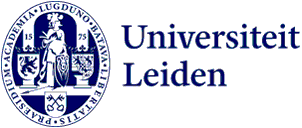
The Teaching Fair: from downtime to teaching about research methods
One more week, then the Teaching Fair will start. For a whole afternoon, all the Faculty of Humanities teaching staff will be able to gain inspiration from their colleagues. Three participants speak about what we can expect.
Pepita Hesselberth will give a workshop on Mindfulness in the Academic Context
‘In this workshop, we will reflect on how we can give concrete shape to the call from the Executive Board and the Faculty Board to build more downtime into our daily working lives. Our environment is often busy and many people find it stressful: our system is always “switched on”. And it isn’t easy to just switch that constant “on” to “off”. Like other academic skills, cultivating moments of downtime takes both training and practice. This is true for both students and teachers. In this workshop, we will explore together the possibilities for more downtime on the basis of mindfulness, and there will be the opportunity to share our own views on what we need.
As teachers, we are often very aware of issues relating to student well-being. At the same time, the Personnel Monitor again shows that academic staff experience their workload as high. Our vocation may give us a tendency to want to do the best we can for our students, and we can sometimes forget about ourselves a little. During this session, we will cautiously try to gain a clearer sense of what we need to make positive changes. As a teacher, then, you will mainly be there for yourself, and not for the institution or your students: the aim is not to become calmer or more productive, but simply to be present with one another in a different way for whatever is taking place.’
Liselore Tissen will give a workshop on Digital Humanities
‘Throughout the Netherlands, there is a growing need to do more with Digital Humanities (DH). At the same time, teachers sometimes find it difficult to determine where to start, what works and doesn’t work and how to implement digital tools structurally in education. CLARIAH (Common Lab Research Infrastructure for the Arts and Humanities) has already developed several digital tools, but their implementation in education has only just begun.
In the session, I therefore want to introduce teachers to what CLARIAH does and what similar initiatives there are in the DH field, so that they know who can help if they have questions about data management, for example. I also want to share knowledge about what does and doesn’t work when DH methods are implemented in education, and where people can find educational support. Hopefully the workshop will help to remove their trepidation about starting to use DH.
As a teacher, if you know what’s possible, where you can try it out and what works and doesn’t work for students, then the move to more digital education might seem less scary. In the process, teachers will also learn how to handle the latest technological innovations, such as ChatGPT.’
Maaike Warnaar will be at the information market with Research Methods in Education
‘We offer our students all kinds of things in our education that are highly valuable, but concrete research methods don’t have a central place in most Humanities study programmes; even though these methods are essential for conducting good research! We want to change this by developing online methods training courses, which can be offered in blended form within existing and new courses. We’re also working on a digital platform that offers students guidance in finding the right research methods for their research, which will allow them to receive online training whenever they need it.
This project brings together the work of many colleagues, since we’re all both teachers and researchers. Wouldn’t it be great if you could teach your students the research methods you use in your research? For example, I myself use discourse analysis: a concrete method for analysing texts. Together with ECOLe, I made a video series in which I teach that method to students. I use those videos in my course The Power of Words: Discourse and Society in the Middle East.
I’ve noticed that this approach really works: students are incredibly enthusiastic. For the first time, they’re grasping what research methods are and what role they play in academic research. And they’re also gaining practice in using a method. They don’t need to reinvent the wheel themselves; they simply receive practical instructions. Students say that their methods training both enriches and deepens their research in ways they would never have thought of themselves.’
The Faculty of Humanities Teaching Fair takes place next week, on Friday 30 June, so this the last chance to register for this inspiring event!
You will meet Humanities teaching colleagues at the information market, where they will be speaking about their education projects, and you can sign up for various workshops. And while doing all this, there will be delicious drinks and snacks for you to enjoy. In short, it’s a great way to end the academic year, catch up with colleagues, exchange experiences and learn from each other. TIP: ask a colleague to join you.
Register and choose which workshops you will attend. Don’t wait too long, because some workshops are almost full.
